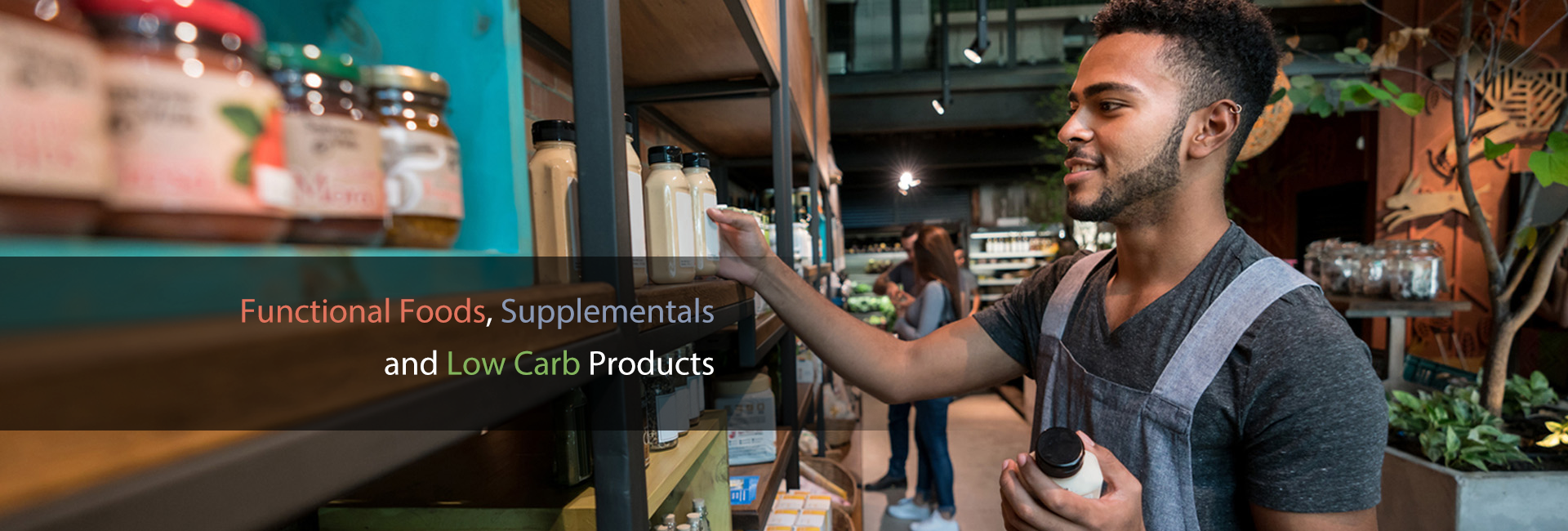The Anti-Inflammatory Benefits of Turmeric found in Javara Noodles
Javara Noodles are not just delicious, they are an easy way to consume cancer-fighting herbs in the form of delicious, quick cooking noodles that help sustain Indonesia's diverse ecology.
By partnering with small scale farmers, Javara's mission is to reduce food waste while providing healthy, delicious and affordable products that can be enjoyed every day.
Try New Javara Gourmet Vegetable Noodles in this Delicious Indonesian Curry Noodle Recipe
Samples can be requested at any time by emailing your Account Manager or sales@lcgfoods.com!
+ Receive an Introductory Discount on your First Order!
Turmeric, a golden-hued spice long revered in traditional Indian and Chinese medicines, is gaining widespread acclaim for its potential anti-cancer properties. Central to turmeric's health benefits is curcumin, a compound that has been extensively studied for its powerful anti-inflammatory, antioxidant, and anti-cancer effects. Here, we delve into the scientific exploration of turmeric's potential in cancer prevention and treatment, shedding light on how this ancient spice might be a valuable ally in the fight against cancer.
Curcumin is the main active ingredient in turmeric, responsible for its vibrant color and a host of its health benefits. Research indicates that curcumin can influence a variety of molecular targets and pathways involved in cancer development, growth, and spread.
Here are key areas where curcumin's potential is being explored:
1. Anti-inflammatory Action
Chronic inflammation is a known contributor to the development of cancer. Curcumin’s potent anti-inflammatory properties may help thwart the inflammatory processes that contribute to the progression of cancer cells. By inhibiting specific molecules involved in inflammation, curcumin could play a significant role in cancer prevention.
2. Antioxidant Properties
Curcumin is a powerful antioxidant that can neutralize free radicals — unstable molecules that can cause damage to cellular structures, including DNA. This action helps protect cells from damage that can lead to cancer. Moreover, curcumin may also boost the body's own antioxidant enzymes, offering an extra layer of protection.
3. Cell Cycle Regulation
Curcumin has been shown to affect cell cycle regulation by promoting the apoptosis (programmed cell death) of cancer cells while sparing healthy cells. This selective cytotoxicity is crucial for eradicating cancer cells without harming normal tissue.
4. Inhibition of Metastasis
Metastasis, the spread of cancer from one part of the body to another, is a leading cause of cancer mortality. Studies suggest that curcumin can interfere with the processes that enable cancer cells to invade and migrate to new tissues, potentially reducing the risk of metastasis.
5. Enhancing Chemotherapy’s Efficacy
Emerging research indicates that curcumin may enhance the efficacy of chemotherapy and reduce its side effects. By modulating various signaling pathways, curcumin can sensitize cancer cells to chemotherapy agents, making them more susceptible to treatment.
Turmeric in Cancer Prevention and Treatment: What the Research Says
Clinical trials and laboratory studies have investigated curcumin’s role in combating various types of cancer, including breast, colorectal, pancreatic, and prostate cancer. While results are promising, it’s important to note that many studies involve high concentrations of curcumin — far beyond what one might consume in a typical diet.
Incorporating turmeric into your diet is a simple way to harness its potential health benefits. Whether used in cooking, as a supplement, or in beverages like golden milk, turmeric can be a flavorful addition to your wellness routine. However, it's crucial to consult with a healthcare provider before using turmeric or curcumin supplements, especially for individuals undergoing cancer treatment or taking medication, as curcumin can interact with certain drugs.
As research continues, the future looks bright for turmeric’s role in cancer care. Ongoing clinical trials and studies aim to better understand the mechanisms behind curcumin’s anti-cancer effects and its potential as a complementary treatment alongside conventional cancer therapies.
The Future of Turmeric in Oncology
Turmeric, with its active compound curcumin, offers a beacon of hope in the realm of cancer prevention and treatment. Its anti-inflammatory, antioxidant, and anti-cancer properties underscore the spice's potential as part of a holistic approach to health and wellness. As science unravels more about turmeric's therapeutic capabilities, it becomes increasingly clear that this ancient spice holds modern promise in the fight against cancer.


